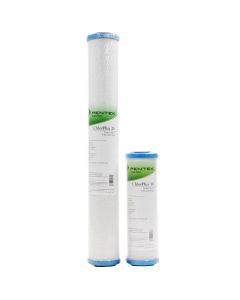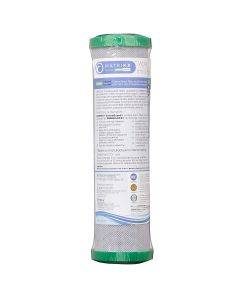I was going to use a chlorine test to determine when to replace my carbon block in my RODI unit, rather than changing it at a time interval. I have just tested the output from the carbon block for the first time, using the LaMotte Insta-Test test strips, and this test showed zero free chlorine but potentially up to 5 ppm of total chlorine.
I then tested the output water and the waste water and it shows zero of both.
I was under the impression that it was the carbon block that removed the chlorine. Do I need to replace the carbon block (which isn't very old) or is it ok to carry on using it if the water output is chlorine free?
I then tested the output water and the waste water and it shows zero of both.
I was under the impression that it was the carbon block that removed the chlorine. Do I need to replace the carbon block (which isn't very old) or is it ok to carry on using it if the water output is chlorine free?























